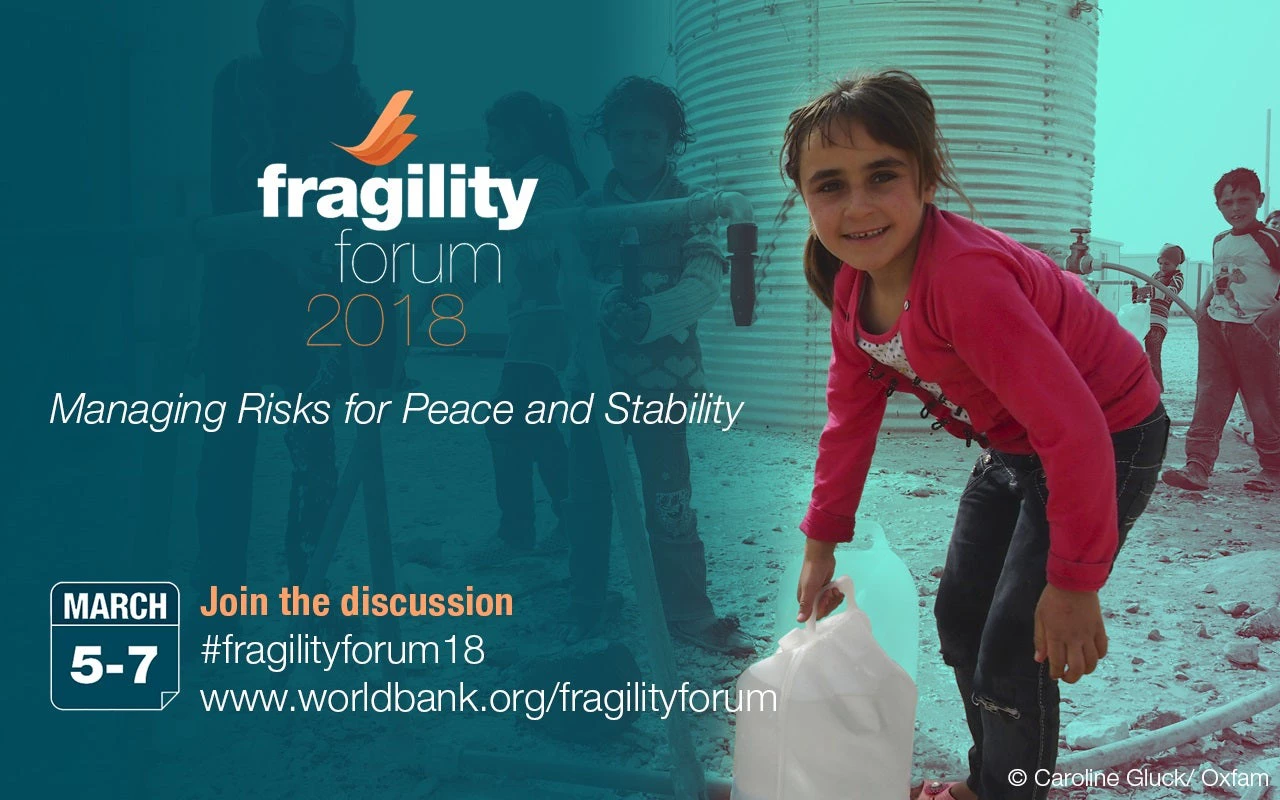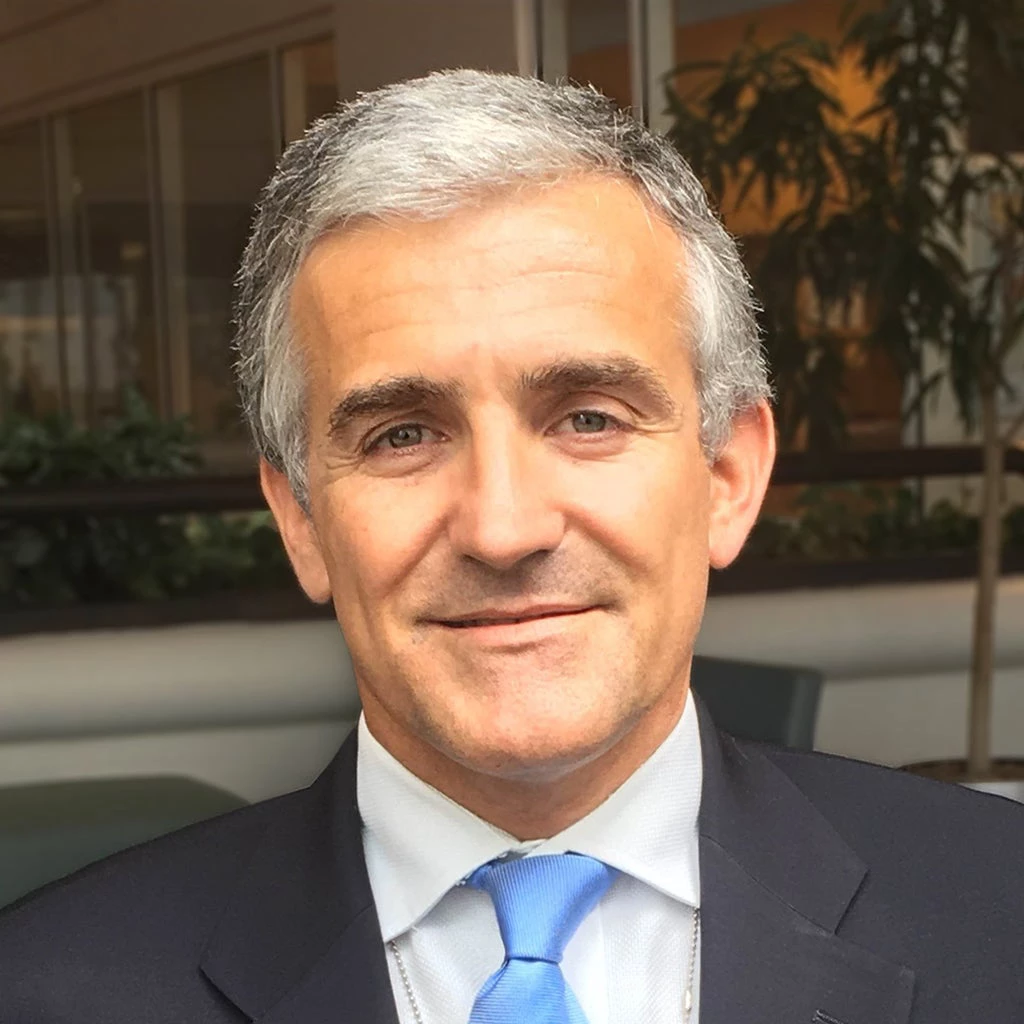
In just under two weeks, about 1,000 people will gather in Washington D.C. for the 2018 Fragility Forum . Policy makers from developed and developing countries, practitioners from humanitarian agencies, development institutions and the peace and security communities, academics and representatives of the private sector will come together with the goal of increasing our collective impact in countries affected by fragility, conflict and violence (FCV).
The theme of the Forum, Managing Risks for Peace and Stability, reflects a strategic shift in how the global community addresses FCV – among other ways by putting prevention first. This renewed approach is laid out in an upcoming study done jointly by the World Bank and United Nations: Pathways for Peace: Inclusive Approaches to Preventing Violent Conflict. The study says the world must refocus its attention on prevention as a means to achieving peace. The key, according to the authors, is to identify risks early and to work closely with governments to improve response to these risks and reinforce inclusion.
Estimates show that two billion people live in countries affected by fragility. They are spread across low-income countries (LICS) and middle-income countries (MICs). The spread of fragility to MICs challenges long-held assumptions that fragility is primarily confined to poor countries and that the relative strength of MIC institutions would foster social and economic progress and shield them from the ravages of FCV. This notion is false. In 2016, more countries experienced violent conflict than at any time in the last 30 years. We want to prevent conflict before it takes hold to ensure that countries are better able to protect their citizens and maintain the development gains of the last few decades.
With participants from 90 countries and over 400 organizations coming together, the Fragility Forum reinforces the importance of partnership. We know that no one country or organization can fight fragility globally and win; instead it will take close collaboration and many institutions working with governments to develop more research and data, improve policies, and increase resources to bring about better solutions.
At the World Bank, we are scaling-up our efforts to maximize our impact on FCV. Through the International Development Association (IDA), we are doubling resources for FCV-affected countries to more than $14 billion. We have introduced new financing mechanisms - including $2 billion to support refugees and host communities and $2.5 billion to spur private enterprise. In addition to working with global partners, we are also working across our own institutions to leverage the full suite of tools, financing, and knowledge available. Fighting FCV is at the heart of the Bank’s mission to end poverty. Projections show that by 2030 between 43 and 60 percent of the world’s poor people will live in FCV-affected countries.
As the Forum approaches, I hope that the international community will take a moment to reflect on the millions of people already suffering from the impacts of war and other conflicts: those dying in conflict and those who have been forced from their homes as a result of it.
At the Forum, we will hear directly from policy makers from Afghanistan, the Central African Republic, Chad, Iraq, Jordan, Niger, Nigeria, Somalia and Tajikistan on how their countries are addressing fragility, conflict and violence, as well as from representatives of international organizations – International Committee of the Red Cross, International Rescue Committee, Mercy Corps, Save the Children, United States Institute of Peace, UNICEF and many others – on what they are doing to support and assist countries and their most vulnerable citizens.
For more information on the Fragility Forum, please visit here; to follow on Twitter, use #FragilityForum18; and to watch a selection of Forum events live and submit your questions to panelists, visit here.


Join the Conversation